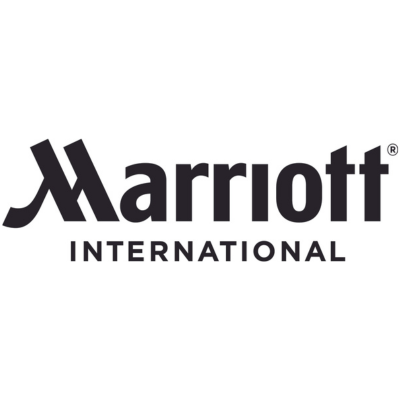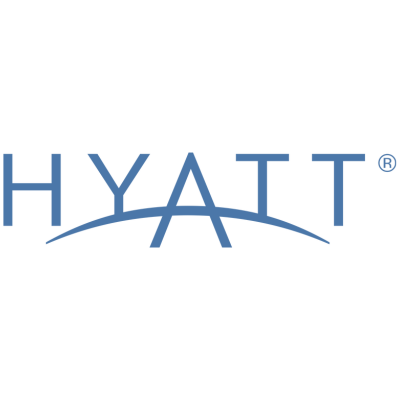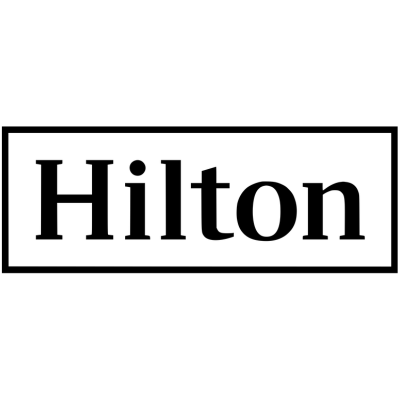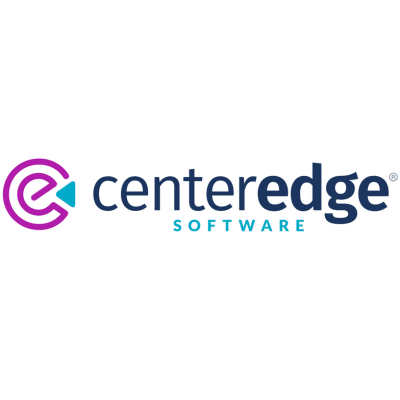Last Updated: April 2024

Hospitality rental property investing is a specialized real estate strategy that involves investment in properties specifically in the hospitality industry such as lodging, recreational facilities, travel and tourism properties, food and beverage establishments, and event or meeting spaces. This type of investing allows capitalization on the lucrative hospitality sector, but it requires a thorough understanding of the industry, superior guest services, and efficient operations management.
On This Page
- What is Hospitality Real Estate Investing?
- 9 Ways to Invest in Hospitality Real Estate
- How to Buy a Hospitality Rental Property
- Top Hospitality Real Estate Investing Tools
- Hospitality Real Estate Investing Calculators
- Pros and Cons of Investing in Hospitality Real Estate
- Hospitality Real Estate vs Other Rental Real Estate Asset Classes
What is Hospitality Real Estate Investing?
Hospitality Real Estate Investing Definition
Hospitality real estate investing refers to the acquisition, ownership, management, rental, or sale of properties specifically designed for accommodation or leisure services. This category predominantly includes hotels, motels, resorts, and other lodging facilities where services are provided against payment.
Multifamily Rental Investing Explained
Hospitality real estate investing centers on properties that cater to travelers and guests, offering not just accommodations but often additional amenities like restaurants, spas, or conference spaces. These investments are deeply influenced by travel trends, seasonal variations, and the broader health of the tourism industry. Success in this sector often demands a keen understanding of guest preferences, effective marketing strategies, and the ability to adapt to changing market dynamics.
9 Ways to Invest in Hospitality Real Estate
Direct Ownership of a Hospitality Property
This method of rental property investing involves directly purchasing and owning a hospitality property, such as a hotel or resort. Investors benefit from both the property’s appreciation and the revenue generated from its operations. Direct ownership gives the investor full control over the property, from its management to its operational strategies.
Developing a Hospitality Property
This approach requires investors to identify land or a redevelopment opportunity and then build or renovate a hospitality asset. It’s a capital-intensive method but offers the potential for significant ROI, especially if the developer correctly anticipates market demand and manages the construction process efficiently.
BRRRR a Hospitality Property
The “Buy, Rehab, Rent, Refinance, Repeat” (BRRRR) strategy involves purchasing a hospitality asset, renovating it, renting it out to generate income, refinancing the property (typically to retrieve a substantial portion of the initial investment), and then repeating the process. This method leverages the increased value post-renovation, enabling investors to grow their portfolio without continuously injecting fresh capital.
Hospitality Real Estate Note Investing
Investors purchase debt secured by hospitality properties, making money from the interest on these loans. This method doesn’t involve direct ownership of the property but rather owning the loan. It’s a way to benefit from the hospitality industry’s growth without dealing with day-to-day operations or property management.
Hospitality Real Estate Companies








Several large hospitality real estate companies have redefined the dynamics of this asset class. Their size and influence not only shape market trends but also impact rental standards and practices nationwide. Investing in them, where possible, can be a great way to gain exposure to this asset class.
Turnkey Hospitality Real Estate
In turnkey investing, hospitality investors purchase fully operational properties that are already renovated, furnished, and in many cases, managed by a professional team. It’s a more passive form of investment, allowing individuals to benefit from the property’s rental income without getting involved in its initial setup or ongoing management.
Hospitality Triple Net (NNN) Investing
With NNN investments, the property owner (investor) typically isn’t responsible for any of the property’s operational expenses, like taxes, maintenance, or insurance. Instead, the tenant, usually a hotel operator or brand, covers these costs. This arrangement provides the investor with a more predictable income stream, often with fewer management responsibilities.
Hospitality Real Estate Syndication
This method involves pooling funds from multiple investors to acquire a hospitality asset. An experienced sponsor or management group typically oversees the property, while individual investors act as passive shareholders. Syndications allow individuals to invest in larger, potentially more profitable properties than they could afford on their own.
Hospitality Real Estate Stocks
Real Estate Investment Trusts (REITs) offer a way to invest in hospitality real estate without buying physical property. Instead, investors purchase shares in a trust or corporation that owns or finances hospitality assets. REIT investing provides liquidity, as they’re traded on major stock exchanges in addition to their frequent dividend distributions.
How to Buy a Hospitality Rental Property
Investing into the world of hospitality real estate provides investors with unique opportunities and challenges distinct from traditional real estate sectors. To be successful, buyers must grasp not only the property acquisition intricacies but also the nuances of hospitality service, branding, and management.
Hospitality Property Purchase Process
- Self Assessment & Investment Objectives: Begin by clarifying your financial capabilities, understanding of rental real estate finance, risk tolerance, and specific goals to ensure alignment with your intended hospitality property purchase.
- Assembling Your Hospitality and Real Estate Team: Assemble a diverse team of professionals, including hospitality consultants, a commercial broker with hospitality property experience, and legal advisors, to guide your acquisition process.
- Market and Location Analysis: Scrutinize potential markets and specific locations to identify trends, competition, and guest demand, ensuring the site aligns with your investment objectives.
- Key Characteristics of Successful Hospitality Properties: Focus on properties with optimal locations, unique value propositions, and sound infrastructure, which typically yield higher returns and guest satisfaction.
- Evaluating Financing Options for Acquiring Properties: Explore various financing avenues, such as commercial bank loans, investors, or joint ventures, to determine the most advantageous funding structure.
- Making Offers and Negotiating Purchase Terms: After identifying a potential property, strategically present your offer and negotiate terms, keeping in mind both market conditions and your financial thresholds.
- Property Inspections, Appraisals, and Due Diligence: Ensure the property undergoes thorough inspections and appraisals, while also diligently verifying its legal and financial standing.
- Closing on the Property Purchase: Collaborate with your legal team to finalize documents, ensure all terms are met, and successfully acquire the hospitality asset.
Managing and Branding Hospitality Properties
- Designing and Furnishing the Property: Craft interiors that resonate with your target audience, prioritizing both aesthetics and functionality to enhance guest experiences.
- Creating a Strong Brand or Franchising a Brand: Develop a unique brand identity for your property, or consider aligning with an established franchise to boost credibility and recognition.
- Delivering Superior Guest Services: Emphasize training and consistent service delivery to ensure guest satisfaction, driving repeat business and positive reviews.
- Property Maintenance and Renovations: Regularly maintain and update the property to keep it in peak condition, ensuring guest comfort and adherence to industry standards.
Marketing and Revenue Management for Hospitality Properties
- Creating a Comprehensive Marketing Strategy: Develop a robust marketing plan encompassing digital, social, and traditional channels to effectively reach and attract your target demographic.
- Implementing Pricing and Revenue Management Strategies: Leverage hospitality software and data-driven pricing strategies to optimize occupancy rates and revenue, adapting to market fluctuations and seasonal trends.
- Building Partnerships with Local Businesses and Tourism Boards: Collaborate with local entities to enhance guest experiences and tap into wider marketing and promotional opportunities.
Financial Management and Performance Analysis
- Understanding Revenue Streams, Operating Costs, and Cash Flow: Maintain a detailed financial overview, monitoring diverse revenue streams, operational costs, and ensuring positive cash flow.
- Assessing Return on Investment: Regularly analyze financial performance against your initial investment to gauge ROI and inform future decision-making.
- Tax Considerations and Benefits: Familiarize yourself with specific tax implications and advantages within the hospitality sector to optimize your financial strategy.
Scaling and Diversification in Hospitality Property Investing
- Strategies for Growing Your Hospitality Portfolio: Explore new developments or potential acquisitions to expand your portfolio, leveraging insights from existing properties to guide expansion.
- Diversifying Your Portfolio with Different Types of Hospitality Properties: Invest in varied hospitality assets, from boutique hotels to resorts, to hedge against market volatility and capitalize on diverse revenue streams.
- Exit Strategies: Understand when to exit an investment, whether through a sale, refinancing, or transitioning the business, to optimize returns and safeguard your portfolio.
Top Hospitality Real Estate Investing Tools
The #1 Rental Property Newsletter
Once a month, we send out an exclusive Rental Property Market Update with top stories, current mortgage rates, building products, and more. No spam and unsubscribe anytime.


Hospitality Real Estate Investing Calculators
Pros and Cons of Investing in Hospitality Real Estate
There are many factors to consider when determining whether or not to invest in hospitality rental properties. The following is a comprehensive list of the pros and cons you need to know before investing in hospitality rental properties.
Pros of Hospitality Property Investing
- Strong Demand – There is always going to be a demand for accommodation, whether it’s for business or leisure travel. This means that your property is likely to be occupied most of the time, generating a healthy return on investment.
- High Standards – Hospitality properties are held to high standards, so you can be sure that your investment will be well-maintained. Well run hospitality properties usually translate into happier guests and greater profits.
- Professional Management – Hospitality properties are managed by experienced professionals who know how to maximize revenue and keep guests happy. This means that you can relax and leave the running of your property in safe hands.
Cons of Hospitality Property Investing
- Cyclical Industry – The hospitality industry is notoriously cyclical, and properties can lose significant revenue during down cycles. Factors such as weather, global events, and consumer preference can all affect a hospitality property’s favorability.
- High Entry and Operating Costs – Hospitality properties are often very expensive to purchase and maintain. High operating costs coupled with an unplanned down-cycle, and the property can be a drain on financial resources.
- Highly Competitive – The hospitality industry is highly competitive, with no guarantee that a particular property will be successful. One-upping competitor amenities, discounting prices, and marketing campaigns are all tools used by hospitality properties to gain advantages over competitors.
Search Rental Real Estate
Try searching out site for hundreds of rental property topics ranging from property management, investor tool reviews, investment research, and more.
Hospitality Real Estate vs Other Rental Real Estate Asset Classes
Hospitality real estate offers a unique blend of challenges and opportunities, when compared to other rental asset classes. As an investor, understanding these distinctions beforehand, can greatly improve the odds of investment success.
| Criteria | Hospitality Real Estate | Multifamily | Student Housing | Senior Living |
|---|---|---|---|---|
| Scale of Investing | High (dependent on location and property type) | Moderate to High | Moderate | High due to specialized facilities |
| Management Intensity | Very High (daily operations, guest services) | Moderate (tenant management) | High (semester rotations, facility management) | Very High (healthcare services, daily needs) |
| Liquidity | Lower (depends on market conditions) | Moderate | Moderate | Moderate to High |
| Risk Profile | Moderate to High (subject to tourism and economic factors) | Moderate (stable demand) | Low to Moderate (consistent academic year demand) | Low (aging population increases demand) |
| Potential ROI | High (with successful management and location) | Moderate to High | Moderate | Moderate to High |
| Tenant Duration | Short-term (days to weeks) | Long-term (months to years) | Seasonal (academic year) | Long-term (years) |
| Market Sensitivity | High (affected by economic, political, and environmental factors) | Moderate (driven by demand for apartments) | Moderate (tied to academic enrollment) | Low to Moderate (dependent on demographic shifts) |
More Real Estate Investing Asset Types
About the Author


Ryan Nelson
I’m an investor, real estate developer, and property manager with hands-on experience in all types of real estate from single family homes up to hundreds of thousands of square feet of commercial real estate. RentalRealEstate is my mission to create the ultimate real estate investor platform for expert resources, reviews and tools. Learn more about my story.
Disclaimer: The information provided on this website does not, and is not intended to, constitute legal and/or financial advice. As such, all information, content, and materials available on this site are for general informational purposes only. Please review our Editorial Standards for more info.
















